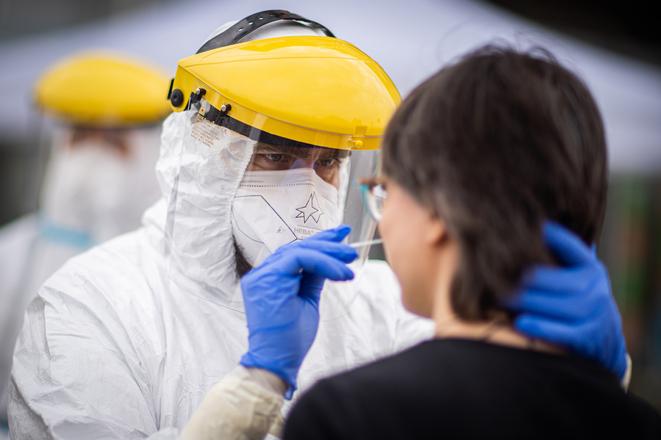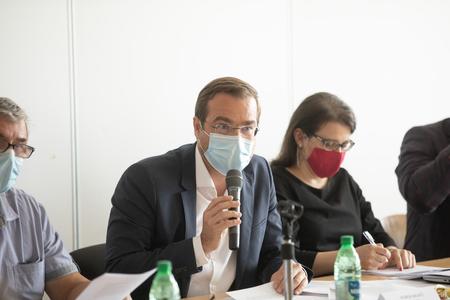The August 11 testing for COVID-19 revealed 75 new cases, most of which were identified in the Galanta district (Trnava Region).
Our paywall policy:
The Slovak Spectator has decided to make all the articles on the special measures, statistics and basic information about the coronavirus available to everyone. If you appreciate our work and would like to support good journalism, please buy our subscription. We believe this is an issue where accurate and fact-based information is important for people to cope.
As many as 21 people who tested positive are employees of the Sládkovičovo-based Fekollini company that produces baguettes and sandwiches under the Pierre Baguette brand.
The company now has 24 workers in total who have been infected with the coronavirus. Its management wants to comment on the situation only after they receive the test results of its entire staff.
Fekollini employs some 500 people.
Regional hygienist Iveta Šuleková thinks that the number of infected people will increase, the TASR newswire reported.
No community spread yet
All newly-diagnosed patients have an epidemic connection with the already confirmed cases. Hygienists are searching for the contacts of the infected people, isolating them and applying measures in the company in cooperation with its management. Measures have also been taken in the accommodation facilities where some employees live.
Hygienists also recommended cancelling all public events in Sládkovičovo.
“The decision on whether the company will be closed or not is up to the regional hygienist,” chief hygienist Ján Mikas told the media on August 12.
Regional health authorities in Trnava and Dunajská Streda recorded two close contacts with the Galanta cases.
“We have not noticed any community spread of COVID-19 in Slovakia. New cases are usually imported from abroad or have some epidemic connection with the already identified patients,” the Public Health Authority noted.
Stricter controls could follow
PM Igor Matovič (OĽaNO) is considering stricter control of how the rules are observed. This includes, for example, wearing masks in the interior.
“Many people do not follow the measures, and I am sorry about that,” he told media at the August 12 press conference.
Mikas said that the group of experts will reassess the epidemic situation in other countries. It is possible that some will change their status from low risk to risky, and vice versa. Croatia, the Czech Republic and Hungary may not change their status, Matovič added.




